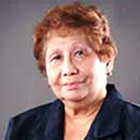TEACHER education brings us a great variety of teaching models, each model having a set of competencies that learners or teachers, or both should develop. There are models that focus on engaging diverse students to deeply learn content as well as basic skills that a subject provides. For deep learning, lesson processing utilizes the art of asking questions. Hopefully, such teaching approaches develop in our learners and teachers a deeply inquiring mind.
'Lesson study' - origin and focus. One model, popularly called "lesson study," has teachers in small groups collaboratively discuss and plan together in conducting an actual classroom lesson. As these groups do so, they refer to research studies on how best to conduct a particular class lesson. They observe how their plan in the actual class setting works, take note of their findings and improve on the plan to better achieve the goals of the lesson study. This problem-solving approach to a teaching improvement process known as jugyō kenkyū has origins in Japanese elementary education. It is a widespread professional development practice. "Jugyō" means teaching and learning. "Kenkyū" means study or research. Thus, as jugyō kenkyū is the study or research of teaching and learning. It is also called research lesson study, or RLS. (https://www.csscni.org.uk › news › using-japanese-lesso..). Results of live classroom lessons conducted were recognized as a successful methodology in Mathematics education. (https://scindeks-clanci.ceon.rs › data › pdf). Unlike traditional teacher-training to improve a teacher's teaching competence, the lesson study method focuses on the response of the students observed and not on how the teacher taught.
Continue reading with one of these options:
Ad-free access
P 80 per month
(billed annually at P 960)
- Unlimited ad-free access to website articles
- Limited offer: Subscribe today and get digital edition access for free (accessible with up to 3 devices)


